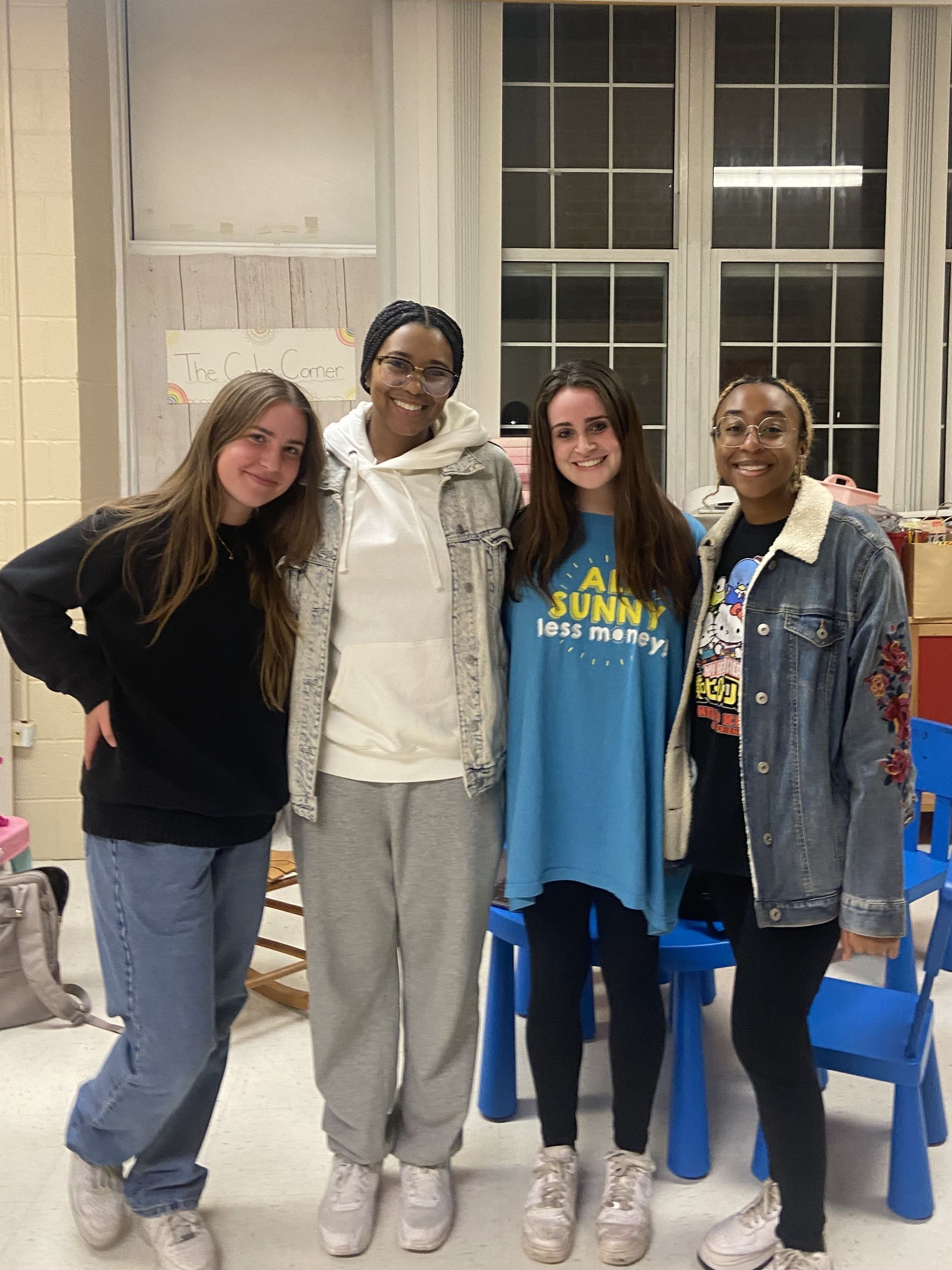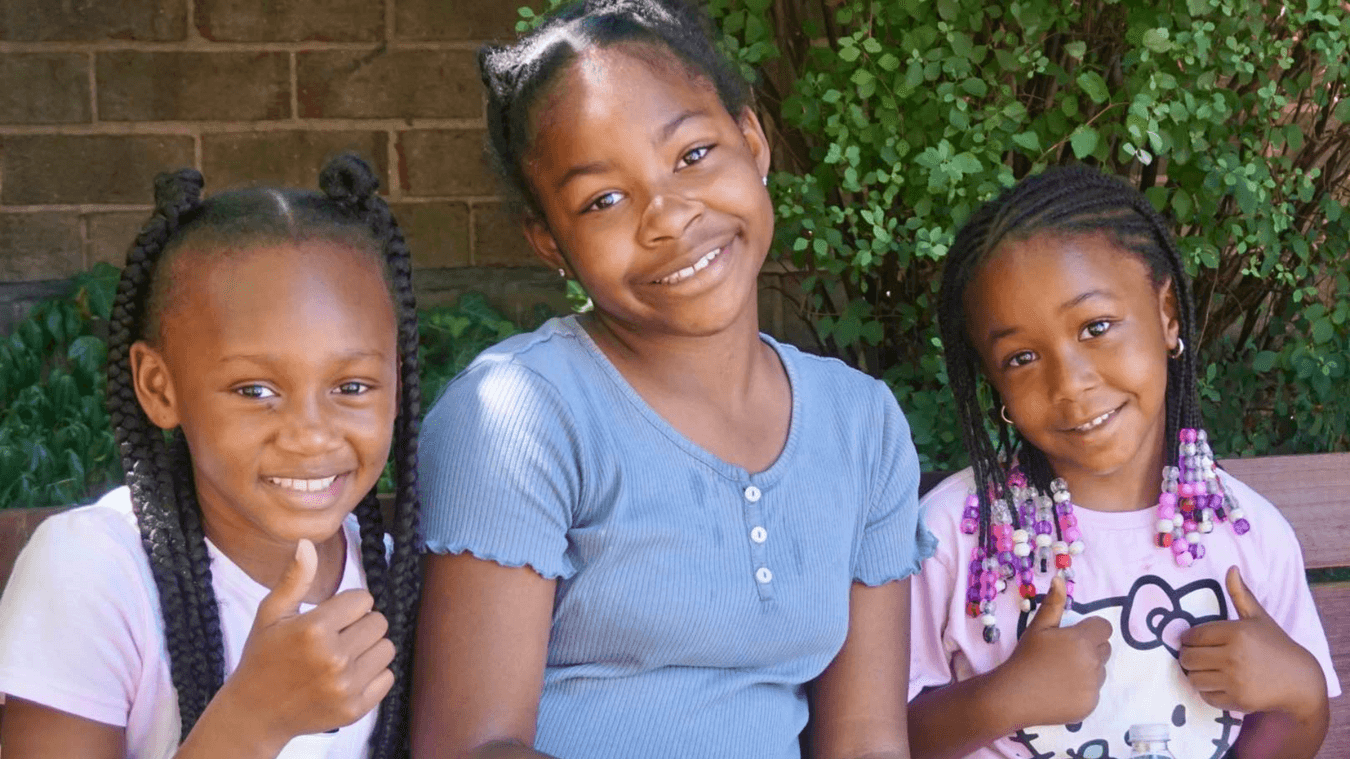
Playtime Project spoke with three of our Play Rangers, Emily Rasmussen, Abbey Hays, and Dominique Austin, who volunteer alongside seven other University of Maryland Psychology Department students. Read about their experiences as volunteers and join us in wishing the group a well-deserved break as they finish up their semester.
1. How did your group get involved at Playtime and what keeps you coming back?
Emily: I/we became involved with Playtime by learning about it in our PSYC381 course, "Community Interventions: Domestic Violence" with Dr. Karen O'Brien. She helped us communicate with an academic advisor in the UMD Psychology Department, Steve Young. Now we are all enrolled in PSYC389, an "Internship in Practice" course, with Playtime being our internship. In short, the kids are what keep me coming back. Building connections with them as individuals and seeing them weekly is such a rewarding experience.
Dominique: What motivated me to come back was the genuine love and joy I felt from every connection and relationship that I've been able to cultivate with every kid that I've met and played with. Being able to see how much the kids have grown both developmentally, as well as within their understanding of themselves, in just a few months, really brought joy to my heart.
2. What has stood out most/what have you learned while being a Playtime volunteer?
Abbey: The thing that stood out to me the most was how sweet and fun the kids are. I look forward to seeing them every week and with every session I get to know them more.
Emily: Seeing the sense of community among those in the shelter really stood out to me. Hearing the way the kids talk about their friends and how they take care of one another, even when it's not their sibling or they don't have to, is very heartwarming to see.
Dominique: I think what stood out to me the most was just how much more work there is that needs to be done in order for us to end housing and food insecurity. Prior to volunteering, I didn't really realize how much privilege I held. I definitely took for granted the little things in my life that I didn't realize were a luxury to have. So it really pushed me to want to continue to do more community work and to help aid and create actual long-term change so that future kids and future families can have access to more resources. I feel like being able to see the struggles that families go through, and feeling as though I cannot do anything to help was really the most frustrating part, so what stood out to me the most was simply the need for more policy change and government funding targeted towards communities in need.
3. What are a few of your favorite memories while volunteering at Playtime?
Dominique: My favorite memories all involve my interactions with the kids. For instance, one little girl used to come up to me every week and just give me a hug out of the blue and tell me that she really cared about me and she was so happy that I could play with her. Honestly, those little interactions where the kids are able to express themselves in such a positive way really melts my heart!
Emily: Many of my favorite memories have been doing any sort of activity with the children. It's nice to see them laugh and work together, whether it's making jewelry, drawing with chalk, trying new crafts, etc. One especially fun activity, for both the children and volunteers, was a fashion show and red carpet. They were all so excited to try on different costumes and be a superhero, princess, cartoon character, or anything they wanted to be. They then had their celebrity spotlight moment to walk the red carpet and be interviewed by other kids, which was also so fun to watch.
4. Has your understanding of housing insecurity and the children/families who experience it changed since you began? If so, how?
Emily: I believe I now have a better understanding of housing insecurity and the challenges it comes with. Initially, I wasn't very familiar with the details of housing insecurity or what it entails. I've been able to observe some of the processes/experiences that the children/families go through while in the shelter, which has been very eye-opening. In general, most people don't give housing insecurity a second thought if it doesn't directly affect them. I wish more people would volunteer and educate themselves. It's important to bring attention to it.
Abbey: I have gotten to have a better understanding of housing insecurity. The supervisor on site tells us about some of the families' situations and it's opened my eyes to hear about the logistics behind their situations and the different obstacles they face trying to find secure housing.
Dominique: I don't necessarily think that my understanding of housing insecurity has changed because I volunteered with another service organization prior to working with Playtime. But, while being at Playtime, I did have the opportunity to see how housing insecurity affects children, specifically. I didn't necessarily think about how impactful housing insecurity is on a child’s development and their social relationships. For example, one kid told me that he was being bullied because the other kids at school found out that he was living in a shelter. So while I did come in with a general understanding of housing insecurity, I think that I gained a different perspective on how homelessness impacts kids.
5. What do you wish everyone understood about children and families experiencing housing insecurity?
Dominique: I wish that more people would understand that living with housing insecurity is hard, and it can happen to anyone. I think that people are so quick to judge when they see someone who is experiencing housing insecurity. They are also quick to question what people are doing to help themselves, but once you understand the ins and outs of the bureaucracies in place that make it difficult just to live day by day, especially when you have children, it brings so much perspective. So ultimately, I wish more people were more cognizant and understanding of other people's experiences, and advocate to help make change, rather than being judgmental.
Abbey: It’s way easier said than done. A lot of people assume that these families should just "get a job" or "live with people they know" but it's not like that. There are so many obstacles these families face in terms of childcare, money, schooling, jobs, etc. and it's really hard to get back on your feet without the proper resources.
6. What would you say are the benefits of volunteering as a group?
Emily: Volunteering as a group has been a great part of this experience. I've become closer with my fellow interns through spending time together and sharing experiences, which helps to build community within the organization. Going as a group also made the start of the internship less intimidating, but the volunteers/supervisors I see weekly are also so welcoming and have truly created a comfortable environment regardless.
Abbey: For me, it’s being able to share the good and bad experiences together. We all have an understanding of the situation and the kids that are there and we are able to debrief after each session and go over what we experienced.
Dominique: I think the biggest benefit to volunteering as a group is that you have your own trusted system/ debrief group, outside of the larger volunteer group. I think the thing that I relied on the most, especially at the beginning of my time with Playtime, was my group mates because we were able to talk through any uneasy feelings and give each other different perspectives; validating each others’ feelings and building an almost unspoken community between peers.

